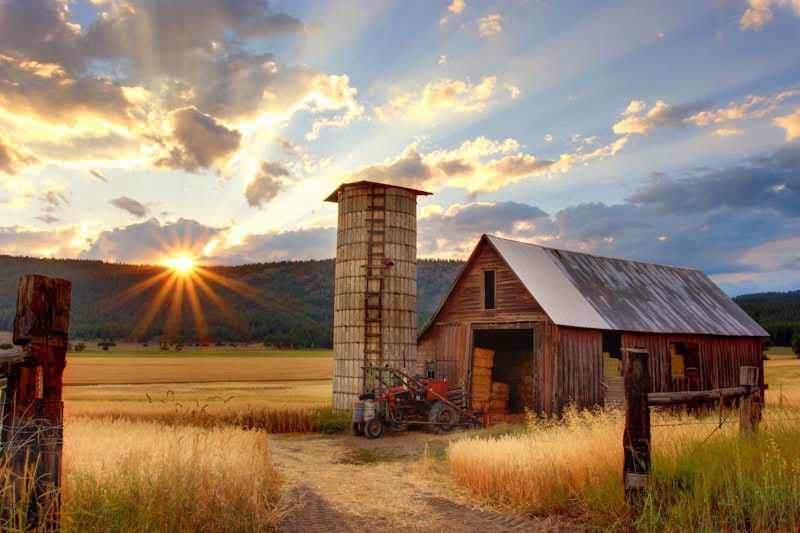Are you curious to know which country holds the title for being the poorest in the world? Well, prepare yourself for an eye-opening revelation. In this article, we will explore and uncover the truth behind the struggles of a nation that has faced immense challenges and hardships. So, without further ado, let’s dive into the details.
When it comes to measuring poverty, various factors are taken into account, such as GDP per capita, income inequality, literacy rates, and access to basic necessities like clean water and healthcare. Among the countries that consistently rank among the poorest, one name stands out: Burundi.
Nestled in East Africa, Burundi has experienced significant economic and political instability over the years. Despite its breathtaking landscapes and vibrant culture, the country faces numerous hurdles on its path to development. With a staggering poverty rate of over 70%, Burundi struggles to meet the basic needs of its population.
One of the primary reasons behind Burundi’s poverty is its tumultuous history. The country has endured years of civil war, political unrest, and ethnic conflicts, leaving it in a state of socio-economic turmoil. These factors have contributed to a lack of infrastructure, limited access to education, and inadequate healthcare facilities.
Moreover, Burundi’s reliance on agriculture as its main source of income exacerbates the poverty situation. The majority of the population relies on subsistence farming, facing challenges such as soil erosion, unpredictable weather patterns, and limited access to modern farming techniques. These obstacles hinder agricultural productivity and perpetuate the cycle of poverty.
The consequences of extreme poverty can be seen in the daily lives of Burundians. Malnutrition, high infant mortality rates, and limited educational opportunities are just a few of the many challenges they face. However, it’s important to note that despite these difficulties, the people of Burundi exhibit incredible resilience and resourcefulness.
Burundi holds the unfortunate distinction of being one of the poorest countries in the world. Its history of conflict, coupled with economic challenges and limited access to basic necessities, has contributed to its current state of poverty. Nonetheless, it is crucial to recognize the strength and determination of the Burundian people as they strive for a brighter future.
From Tragedy to Triumph: Unveiling the Poorest Country in the World
Have you ever wondered what it’s like to live in the poorest country in the world? The struggles, the hardships, and the resilience of its people? Today, we take a closer look at this nation, where hope still shines amidst adversity.
In this small, often overlooked corner of the globe, poverty has left an indelible mark on the lives of its inhabitants. But behind the scenes of destitution lies a story of triumph waiting to be told. This is the tale of a nation that refuses to let its circumstances define its future.
With limited resources and a history marred by conflict and instability, this country has faced one challenge after another. Its people have endured unimaginable hardship, yet they continue to display remarkable strength and determination. They are the true heroes of this narrative, fighting against all odds to build a better life for themselves and future generations.
Despite the overwhelming poverty, there are glimmers of progress and hope. NGOs and international organizations have stepped in to provide aid and support, empowering local communities to create sustainable change. Through education, healthcare, and vocational training programs, they are breaking the cycle of poverty and offering a lifeline to those in need.
The beauty of this nation cannot be overshadowed by its economic struggles. Its landscapes are breathtaking, its cultural heritage rich, and its people resilient. From vibrant markets teeming with life to traditional celebrations filled with joy, there is a vibrant spirit that permeates through the darkest of times.
This journey from tragedy to triumph is not without its challenges, but it serves as a reminder that even in the face of seemingly insurmountable obstacles, the human spirit perseveres. It teaches us that poverty does not define a nation or its people, but rather their unwavering determination to rise above their circumstances.
So, as we unveil the story of the poorest country in the world, let us not focus solely on its poverty but also on its strength, resilience, and potential. Let us remember that behind the statistics and headlines are real people with dreams and aspirations, who deserve our attention, support, and empathy.
Inequality Unveiled: Exploring the Depths of Global Poverty
Article:

Have you ever wondered why some people live in unimaginable poverty while others enjoy lives of abundance? The world we live in is plagued by a deeply rooted issue: global inequality. In this article, we will delve into the depths of this problem, shining a light on the harsh realities faced by millions around the globe.
Picture this: a family living in a tiny, dilapidated shack, barely able to afford a meal. Meanwhile, just a few miles away, towering skyscrapers house the affluent, their lifestyles filled with opulence and luxury. This stark contrast exemplifies the extreme disparities that exist within our world today.
Global poverty is not an isolated issue; it is deeply intertwined with numerous factors. One key factor is the unequal distribution of wealth. Some individuals and corporations accumulate vast fortunes, while others struggle to make ends meet. This imbalance perpetuates a cycle of poverty, making it difficult for the less fortunate to break free from its grasp.

Education plays a pivotal role in shaping the future of individuals and societies. Unfortunately, access to quality education is limited for many impoverished communities. Without adequate education, individuals are denied the opportunity to acquire skills and knowledge necessary for upward mobility. Consequently, they remain trapped in a cycle of poverty, unable to improve their circumstances.
Healthcare is another critical aspect impacted by global inequality. While advanced medical facilities and treatments are readily available in developed countries, impoverished regions lack even the most basic healthcare infrastructure. This disparity leads to preventable deaths and suffering, exacerbating the already dire situation for those living in poverty.
In tackling global poverty, it is essential to address the structural causes that perpetuate inequality. Governments, international organizations, and individuals must work collectively to implement policies promoting equitable wealth distribution, accessible education, and improved healthcare systems.
We cannot turn a blind eye to the depths of global poverty any longer. It is time to acknowledge the issue, spark conversations, and take action. By addressing the root causes of inequality, we can strive towards a world where every individual has the opportunity to thrive, irrespective of their background.
Inequality unveils an uncomfortable truth about our society. Let us come together, empower one another, and pave the way for a more equitable future.
The Struggle for Survival: Unmasking the Poorest Nation on Earth
Introduction:
Imagine a nation where basic necessities such as food, water, and shelter are luxuries rather than rights. Welcome to the reality of the world’s poorest nation, a place where survival is a daily battle. In this article, we delve into the harsh truths surrounding this impoverished country, shedding light on the challenges its people face and the urgent need for global attention and support.
The Silent Suffering:
In the midst of breathtaking natural landscapes and vibrant cultures, the poorest nation on Earth hides a painful truth. Poverty engulfs every aspect of life, leaving its citizens in a constant state of struggle. Hunger, malnutrition, and disease are rampant, with limited access to healthcare exacerbating the situation. Families are forced to make heartbreaking choices between food, education, and healthcare for their children.
Education as a Beacon of Hope:
Despite the overwhelming odds stacked against them, the resilient spirit of the people shines through. Education emerges as a glimmer of hope, offering a pathway out of the cycle of poverty. However, educational opportunities are scarce, with schools lacking resources and qualified teachers. Children yearn for knowledge, recognizing that education holds the key to a better future.
The Unyielding Spirit of Community:
Within this destitution lies a remarkable sense of community and resilience. Despite facing unimaginable hardships, the people support and uplift one another. They find strength in unity, sharing whatever little they have in an effort to survive. Their determination to improve their circumstances resonates, reminding us of the power of human connection and compassion.
The Urgent Need for Global Aid:
The plight of the poorest nation on Earth demands immediate attention from the international community. Humanitarian aid, improved infrastructure, and sustainable development initiatives are crucial to break the cycle of poverty. It is our collective responsibility to provide assistance and support, working together to empower the people of this nation to build a brighter future for themselves and future generations.
Conclusion:
The struggle for survival in the world’s poorest nation is an ongoing battle, highlighting the urgent need for global intervention. By raising awareness, extending aid, and fostering sustainable development, we can make a difference in the lives of those who continue to fight against adversity. Let us come together as a global community, unmasking the challenges faced by the poorest nation on Earth and shaping a more equitable world for all.
Hidden Realities: Shedding Light on the World’s Most Impoverished Country
Can you imagine living in a place where poverty is an everyday reality? A country where basic necessities like food, clean water, and healthcare are luxuries that many can only dream of? This article unveils the hidden realities of the world’s most impoverished country and sheds light on the challenges faced by its resilient population.
In this forgotten corner of the globe, the people struggle to survive amidst dire circumstances. The country, which shall remain unnamed to protect the privacy of its citizens, grapples with extreme poverty that affects every aspect of life. The lack of economic opportunities, coupled with political instability, has left the majority of the population trapped in a cycle of deprivation.
One of the gravest consequences of poverty is the inadequate access to education. In this destitute nation, children are denied the opportunity to learn and grow, perpetuating a cycle of illiteracy and limited prospects. Can you fathom a world where dreams are shattered due to the absence of basic education?
Furthermore, the scarcity of healthcare facilities exacerbates the suffering of the population. Life-threatening diseases run rampant, while medical resources and personnel are scarce. Imagine living in a place where treatable illnesses become death sentences due to a lack of proper medical care.
But amidst these hardships, there is hope. NGOs and humanitarian organizations are working tirelessly to alleviate the plight of the people. Their initiatives focus on providing healthcare, education, and sustainable development projects to empower the community. By addressing the root causes of poverty, they strive to uplift the lives of those affected and create a better future.
It is crucial for us, as global citizens, to be aware of these hidden realities. Only through understanding can we lend our support and advocate for change. Together, we can amplify the voices of the most vulnerable and work towards creating a world where no one is left behind.
So, let us shed light on the world’s most impoverished country, not just through words, but through our actions. By joining hands and addressing the underlying causes of poverty, we can make a difference and bring hope to those who need it the most.